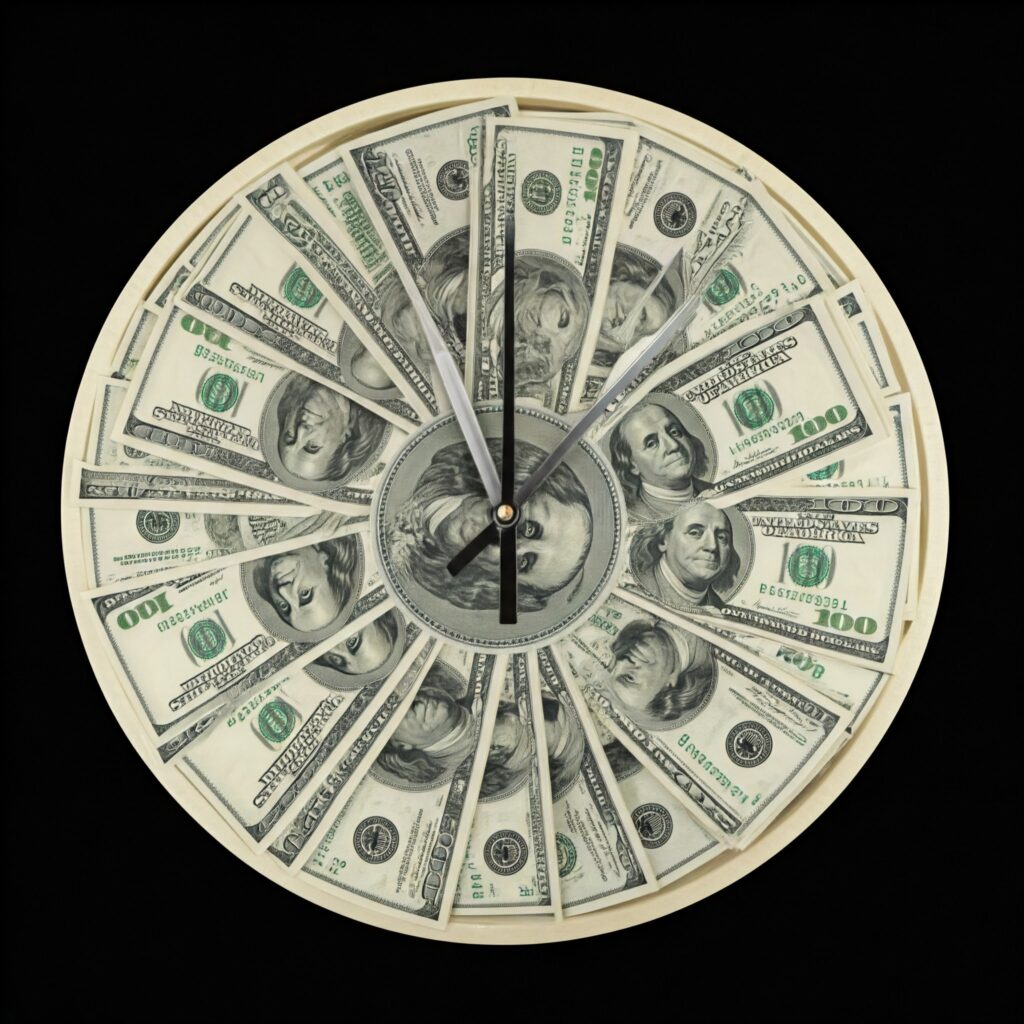
In our relentless pursuit of “financial freedom,” we’re often told to focus on increasing income, minimizing expenses, and maximizing investments. But what if we’re looking at the equation all wrong? What if the true measure of financial well-being isn’t about how much money we have, but how much time we have? This is the provocative question posed by Cal Newport in a recent episode of his “Deep Questions” podcast, where he introduces the concept of “hour cost” and challenges conventional wisdom about money and the deep life.
Newport, a computer science professor and author known for his work on deep work and digital minimalism, argues that simply focusing on the monetary cost of a desired lifestyle can be misleading. A cheaper cost of living in a rural area, for example, might seem appealing, but if it requires significantly more work hours to maintain that lifestyle, it defeats the purpose. This is where the “hour cost” comes in.
The Hour Cost: A New Metric for Financial Well-being
The “hour cost,” as defined by Newport, is the number of work hours per week required to support a particular lifestyle. This metric forces us to consider the trade-off between money and time. It’s not just about how much something costs in dollars, but how much it costs in precious hours of our lives.
To illustrate this point, Newport shares the story of Paul Jarvis, a web designer who moved from Vancouver to a remote area on Vancouver Island. While the cost of living was lower, Jarvis realized that simply chasing more clients and higher revenue wouldn’t necessarily improve his quality of life. Instead, he strategically leveraged his growing skills to increase his hourly rate, allowing him to work fewer hours while maintaining the same income. This reduction in “hour cost” enabled him to enjoy a more fulfilling lifestyle, aligned with his values of nature, slowness, and intentionality.
Beyond Location: Leveraging Skills to Reduce Your Hour Cost
The concept of “hour cost” goes beyond simply choosing a cheaper place to live. It offers a powerful framework for thinking about our careers and how we use our skills. As we become more skilled and in-demand, we often face a choice: take on more work for more money, or maintain our current workload and charge more for our expertise. Newport advocates for the latter, arguing that prioritizing a lower “hour cost” is crucial for cultivating a deep life.
This approach challenges the conventional wisdom of always striving for maximum income. Instead, it encourages us to ask: How can I use my skills to work less and earn the same amount? This might involve:
- Specializing in a high-value niche: Becoming an expert in a specific area allows you to command higher rates.
- Streamlining your workflow: Improving efficiency can reduce the time required to complete tasks.
- Negotiating better terms with clients or employers: Don’t be afraid to ask for higher rates or reduced hours.
Reclaiming Time in a Digitally Distracted World
Newport connects the concept of “hour cost” to his broader work on digital minimalism and the pursuit of a deep life. In our increasingly digital and distracted world, it’s easy to lose track of time and become trapped in a cycle of constant work and digital stimulation. By focusing on “hour cost,” we can regain control of our time and create a more intentional and meaningful life.
The key takeaway is this: Financial freedom isn’t just about having enough money; it’s about having enough time to do the things that truly matter. By shifting our focus from chasing the dollar to counting the hours, we can unlock a new path to a richer, more fulfilling life. It’s not about getting rich quick; it’s about strategically using our skills to buy back our time and create a life we truly want to live.
